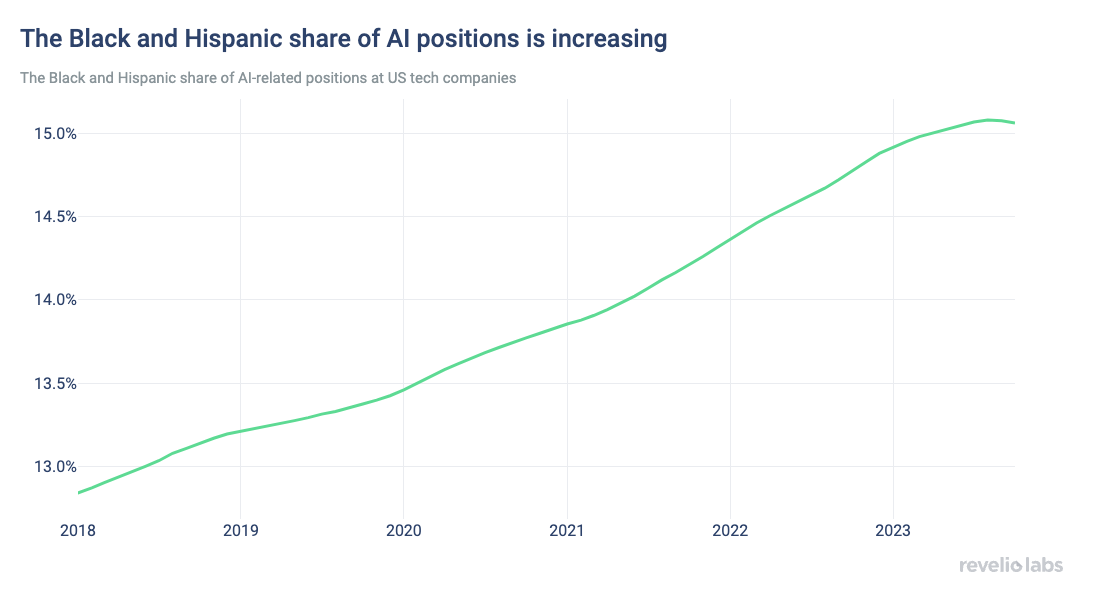Has AI Failed Its Diversity Training?
AI has a diversity problem, but it’s getting better
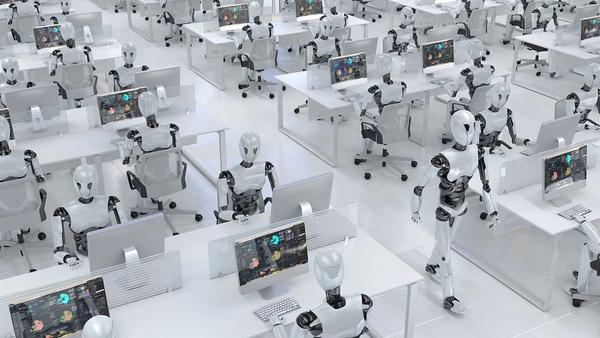
There exists a significant gender gap in AI-related positions within US tech companies, with only 28% of such roles held by female employees.
Despite the overall lack of representation of women in AI-related positions, the female share of these roles has been trending upward in recent years.
Black and Hispanic employees are also underrepresented in AI-related positions, emphasizing the need for targeted efforts to address diversity issues in the field of AI.
In a time of rapid technological progress, the underrepresentation of women and minorities in AI jobs is a pressing concern. As we explore new frontiers in innovation, it's crucial to acknowledge and overcome the barriers that hinder equal participation in this transformative field. In a previous newsletter, we examined the declining female representation in STEM majors and roles. This week, in collaboration with Charter and TIME Magazine, we leverage our talent insights to spotlight the diversity issue in AI-related positions within US tech companies.
Our approach involves using a list of keywords to identify positions in our HR database that list skills and activities closely linked to AI development. While women are underrepresented within US tech companies to begin with, the disparity is even worse in AI-related positions: Only 28% of such roles among US tech companies are held by female employees.

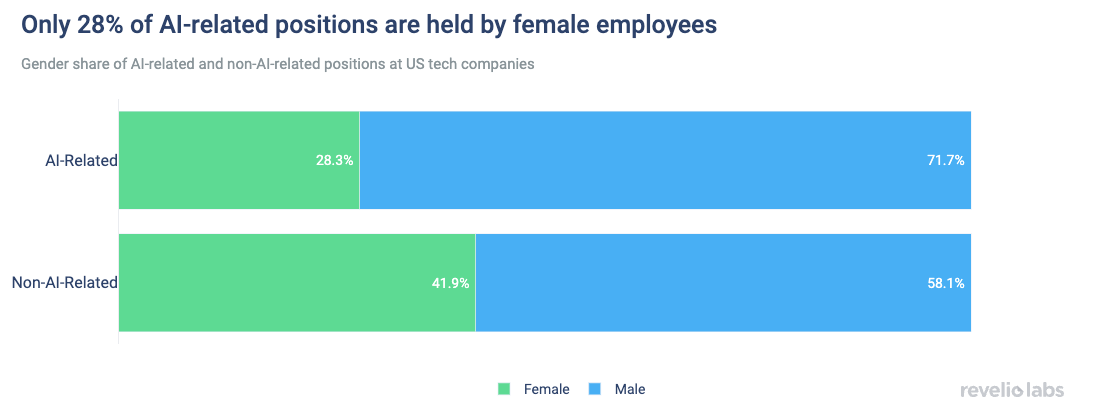
However, on a more positive note, the female share of AI-related positions has been on an upward trend in the past few years. This encouraging shift suggests a gradual improvement in gender representation within the AI sector. Initiatives promoting diversity, increased awareness, and advocacy for equal opportunities may be contributing to this positive change.

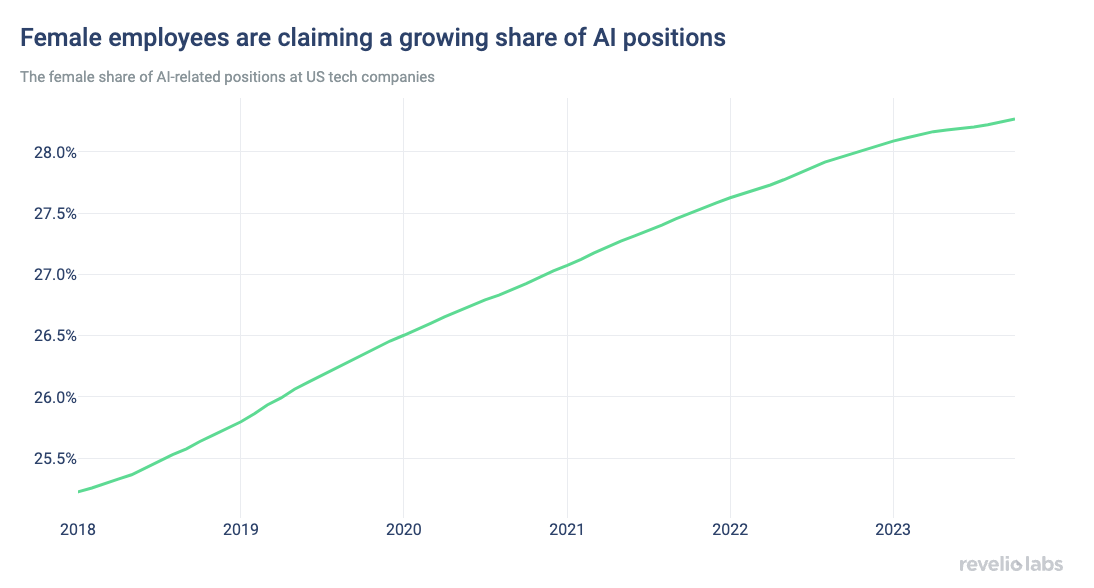
Sign up for our newsletter
Our weekly data driven newsletter provides in-depth analysis of workforce trends and news, delivered straight to your inbox!
When examining the ethnic composition among US tech companies, we observe a concerning underrepresentation of Black and Hispanic employees in both AI-related positions and the tech workforce overall. In total, Black and Hispanic employees make up only 15% of the AI workforce, our talent insights reveal. Even among non-AI related positions, the share of Black and Hispanic employees is only 20%.

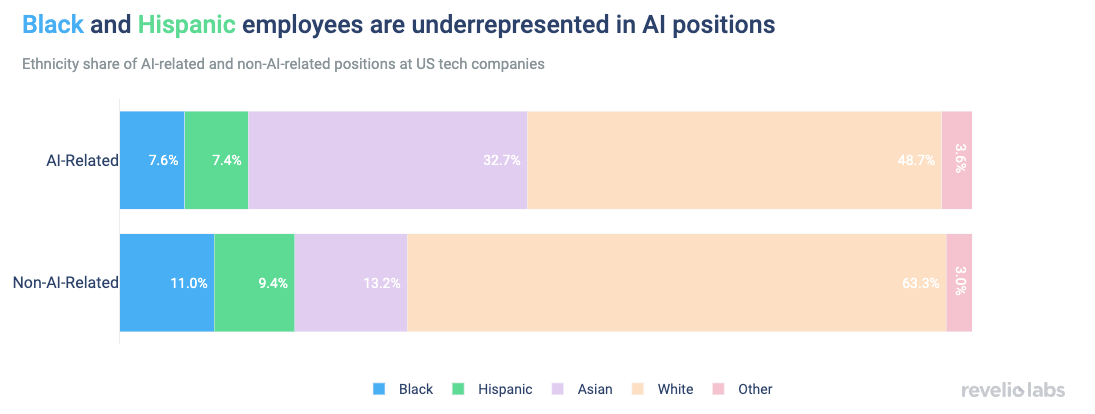
Although we've witnessed an increase in the Black and Hispanic representation in AI-related positions in recent years, the disparity remains pronounced when compared to Asian and white employees. This disparity emphasizes the urgent need for comprehensive initiatives and strategies to address racial disparities. Implementing efforts such as building a diverse talent pipeline, establishing reskill and upskill programs, and eliminating biases in hiring practices can help create a more equitable environment within the field of artificial intelligence and the broader tech sector.

